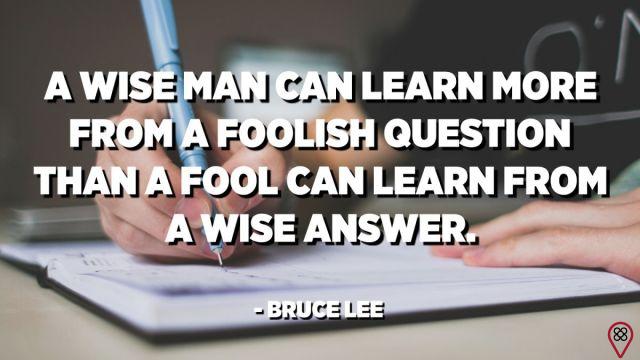
I really like a phrase attributed to the Greek philosopher Socrates, but to be honest, I don't know if it's his, the phrase is as follows: "The wise man learns by watching, while the common man learns by falling". Among so many ways and ways of interpreting this Socratic thought, it can be said that observation, whether scientific or not, is an inexhaustible source of knowledge, learning and wisdom, and that is what we will do next.
First, through observation we learn that we are not self-sufficient. We need each other to survive. As an unfinished being, the human being is a curious being and starts from observation to conquer what he does not yet have. For example, the learning process of babies regarding language, body posture, culture, sociability, etc., is the direct result of observation. Thus, observation provides the human being with extraordinary experiences, true or false, to expand.
Second, observation enables human beings to distinguish what is good and praiseworthy for themselves and for others. Acting out of respect for the value of marital fidelity, for example, is a moral norm learned by observing people who practice that value. Therefore, our trajectory in the world is marked by the experience of our own observation and observation of the acts of others, with whom we live.
Thirdly, life in society, the relationships we maintain with people close to us, the opinion we have of this or that political party, this or that religion, are marked by observation. Observation works as a “filter” that sculpts our minds, making us, for example, act for what is collectively right, making us reject what is repulsive in everyone's understanding.
Fourth, no observation is neutral, that is, every observer is also observed. That is, when I observe a certain behavior of someone, I have to be aware that I am also observed by that someone. It is a two-way relationship: I observe and I am also observed. Therefore, constructive observation is one that generates learning: I learn by observing the behavior of the other and the other learns by observing my behavior.
Fifth, observation leads us to the truth. Not without burden, because the truth is a discourse that can sadden, enrage, provoke revenge, end up in harm, but it is always the adequacy of thought, of language with reality itself, that is, with what is not false. In this way, we are compelled to tell the truth by the certainty that if everyone lied regularly, we would be condemned to coexist in an untrustworthy world, where every statement would be under suspicion and therefore worthless.
Sixth, through observation, we learn that “words move, but examples drag”, that is, we learn to be ethical, lessons that are familiar to us since childhood. Here, I remember my father, who, when he caught me taking a coin from the cashier of his store without asking him, warned me vehemently: “My son, what belongs to your father is also yours. Imagine if all your siblings – there were 7 of us at home – did what you just did! We would be broke! And that's not what we want for ourselves! When you want some money, ask daddy! So never do that again.”
Seventh, observation does seem to be a curious connection between the particular and the universal, between the scientific and common sense. The truth is that we are almost the totality of what we observe. Ie, only observation allows us to stand on the shoulders of giants to see further. In short, everything we know or what we still don't know seems to come from direct observation of the world, reality, things and ourselves.
You may also like other articles by the author: Philosophy of the gaze: a new way of seeing the world

























